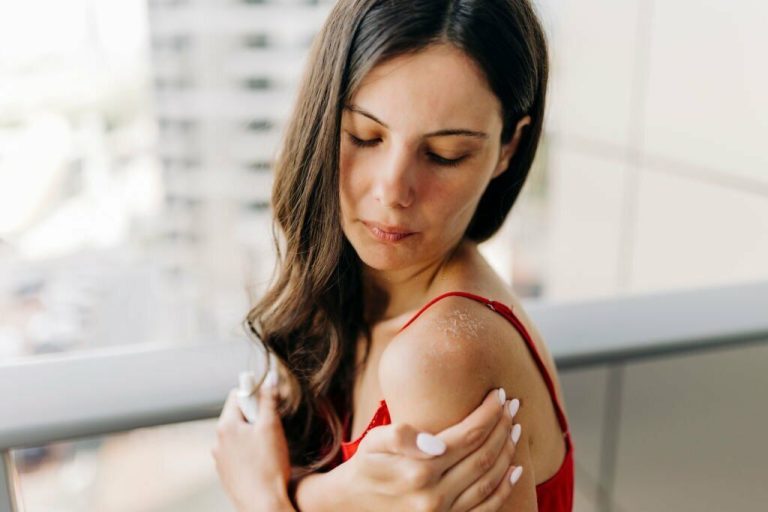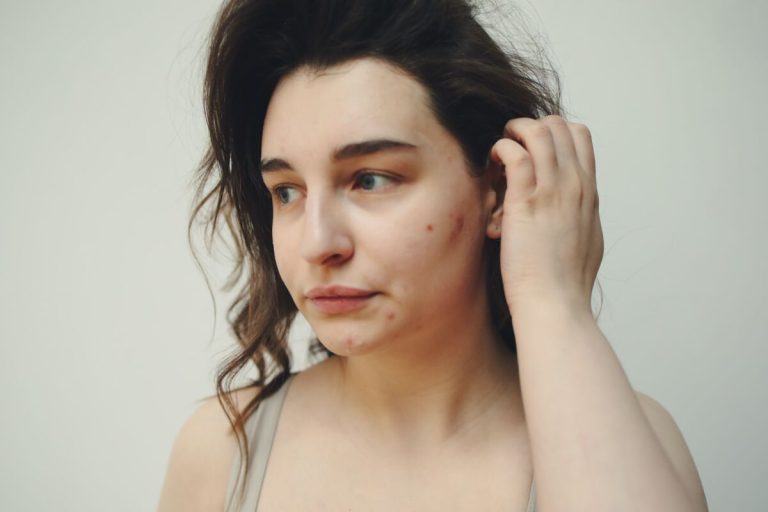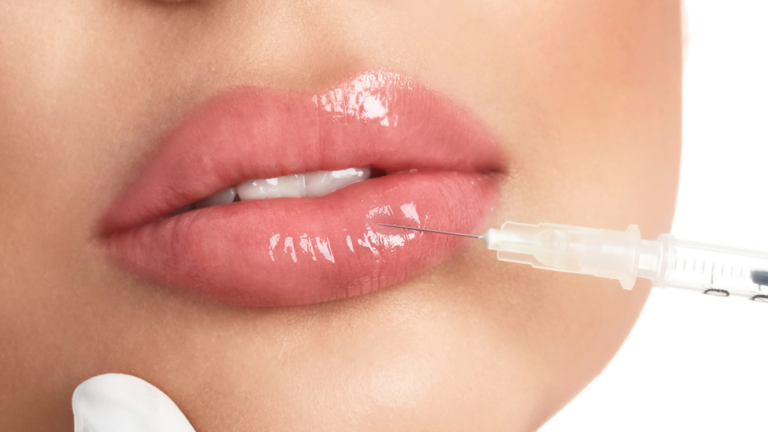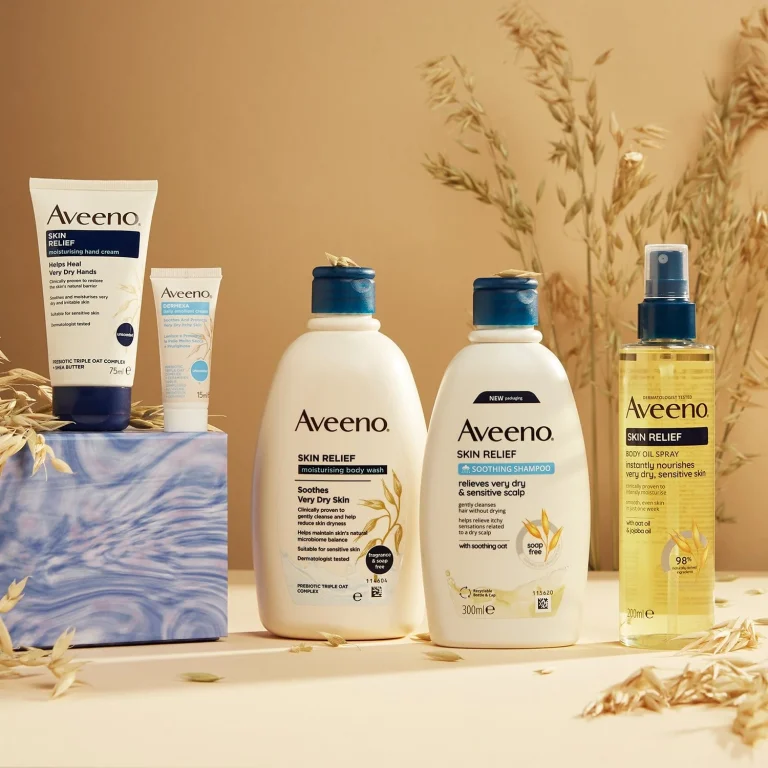Refined vs Unrefined Shea Butter: Which is Better?
Shea butter has become an extremely popular ingredient in skincare and cosmetics. From lotions and lip balms to soaps and shampoos, shea butter is known for its incredible moisturizing and skin-nourishing abilities. But you may have noticed there are different types of shea butter on the market – refined and unrefined. So what exactly is the difference between refined and unrefined shea butter and which is better?
I have tried both refined and unrefined shea butter in my skincare and haircare routines. In this article, I’ll explain everything you need to know about these two forms of shea butter and the pros and cons of each. I’ll also provide tips on how to choose the right shea butter for your needs.
What is Refined Shea Butter?
Contents
- What is Refined Shea Butter?
- What is Unrefined Shea Butter?
- Benefits of Unrefined Shea Butter for Skin
- Unrefined Shea Butter for Hair
- Refined vs Unrefined Shea Butter: Which is Better for DIY Soap Making?
- Appearance, Texture, Shelf Life
- Which is Better: Refined or Unrefined Shea Butter?
- Tips for Buying and Storing Shea Butter
- Conclusion
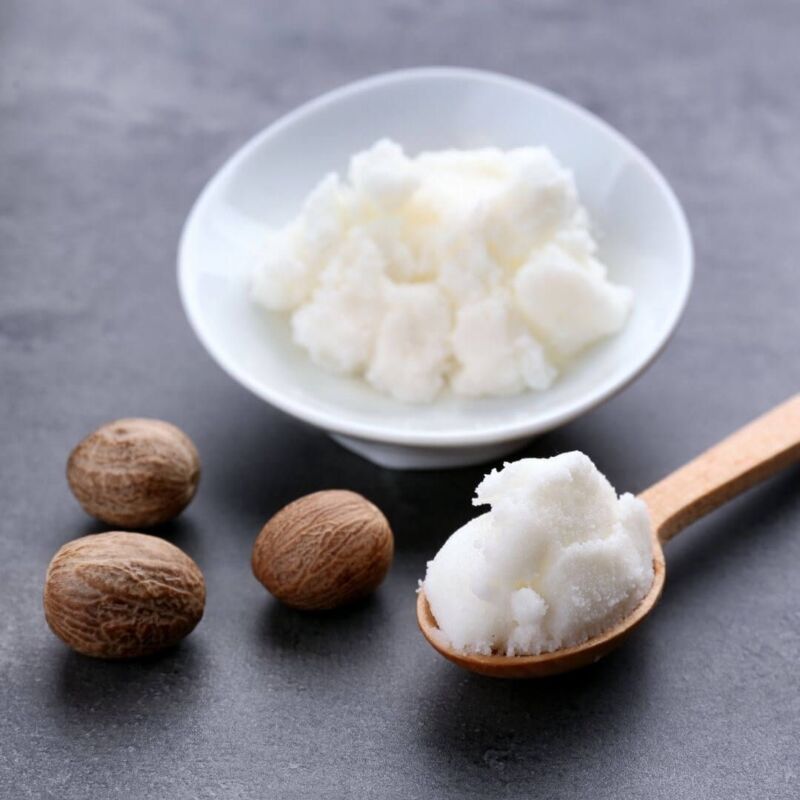
Refined shea butter is processed using chemical solvents and bleaching agents. The purpose of refining is to remove any impurities and create a smoother texture and lighter color. Hexane is commonly used as a solvent to extract and refine the shea butter. Refining also removes the natural nutty scent of unrefined shea butter.
The refining process strips away some of the natural vitamins, minerals, and other nutrients. So refined shea butter has lower levels of vitamins A, E, and F compared to unrefined. However, refined shea butter has a longer shelf life due to the removal of impurities.
Refined shea butter has a smooth, creamy consistency and white or ivory color. It lacks any discernible scent making it ideal for use in cosmetics, lotions, creams, soaps, and other beauty products where the natural scent may be undesirable. People with sensitivities may also tolerate refined shea butter better since potential allergens are removed.
What is Unrefined Shea Butter?
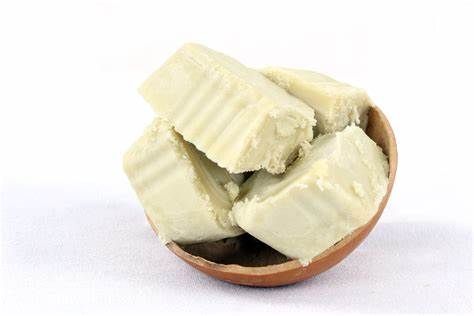
Unrefined shea butter is extracted using low-heat or cold-pressed methods without the use of chemicals. It retains its natural color which can range from cream to yellowish. Unrefined shea butter has a distinctive nutty aroma from the natural components. The texture is thicker and grainier than refined shea butter.
Since unrefined shea butter doesn’t undergo chemical processing, it preserves more of its inherent nutritional content like vitamins, minerals, and antioxidants. It has higher concentrations of vitamins A, E, and F compared to refined shea butter.
Unrefined shea butter is extracted using traditional techniques that are low-impact and environmentally sustainable. It’s an all-natural moisturizer making it great for people with sensitivities or allergies. Due to the lack of preservatives, unrefined shea butter has a shorter shelf life of around 1-2 years.
Benefits of Unrefined Shea Butter for Skin
I prefer using unrefined shea butter in my skincare routine because it provides more nutritional benefits for my skin. Here are some of the top benefits of unrefined shea butter:
- Intense moisturizing – The high concentration of fatty acids and vitamins A and E penetrate deeply to hydrate skin.
- Soothing properties – The anti-inflammatory effects calm skin irritations like eczema, psoriasis, and acne breakouts.
- Antioxidant protection – Vitamins A and E neutralize free radicals to prevent premature skin aging.
- Anti-aging effects – Vitamin F improves elasticity and suppleness for younger-looking skin.
- Healing promoter – It accelerates wound closure and reduces scarring from burns, cuts, and scrapes.
I always keep a jar of unrefined shea butter to use as an overnight facial moisturizer. My skin feels incredibly soft and smooth in the mornings!
Unrefined Shea Butter for Hair
Unrefined shea butter can also be used as a hair conditioner and moisturizer. It contains vitamins and fatty acids that nourish hair follicles and repair damage. The thick, creamy texture coats strands and protects them from breakage.
However, some people dislike the stronger nutty aroma of unrefined shea butter. So it may not be the best option if you are sensitive to fragrances. The texture is also thicker so it may weigh down finer hair.
Refined vs Unrefined Shea Butter: Which is Better for DIY Soap Making?
If you want to make handmade soaps using shea butter, either refined or unrefined can work well.
Unrefined shea butter will provide more skin-nourishing nutrients and the natural nutty aroma can add a nice fragrance. However, the grittier texture may make it more difficult to incorporate into soaps if not properly melted.
Refined shea butter has a smooth, creamy texture that is easier to blend into soaps. The neutral odor won’t interfere with any scents you add. But you lose some of the natural vitamins and antioxidants.
So weigh your priorities – added nutrition or ease of use – when deciding between refined and unrefined shea butter for soap making.
Appearance, Texture, Shelf Life
Here is a quick comparison of the visible differences between refined and unrefined shea butter:
- Appearance – Refined is white/ivory, unrefined is cream to yellow
- Texture – Refined is smooth, unrefined is grainy
- Aroma – Refined has very little scent, unrefined is nutty
- Shelf life – Refined lasts 2+ years, unrefined lasts 1-2 years
I don’t mind the grainier, nuttier unrefined shea butter, especially since it delivers great skincare benefits. But you may prefer the smoother refined option for cosmetics and mixing into body care recipes.
Which is Better: Refined or Unrefined Shea Butter?
When it comes to refined vs. unrefined shea butter, neither is necessarily better across the board. The type you choose depends on your priorities and intended use. Here are a few key considerations:
- For maximum skin health benefits, go with unrefined
- If you want a neutral scent and color, choose refined
- Refined has a longer shelf life if you don’t go through it quickly
- Unrefined is more sustainable and environmentally friendly
- People with sensitivities may tolerate refined better
- Unrefined is a good natural option for babies and children
Tips for Buying and Storing Shea Butter
Here are a few quick tips when shopping for and handling shea butter:
- Read the label – Make sure you are getting pure, high-quality shea butter
- Store in an airtight container away from heat, light, and moisture
- For unrefined shea butter, keep in the refrigerator to prolong freshness
- Avoid buying bigger quantities if you won’t use it within 6-12 months
- Look for shea butter that is fair trade and ethically sourced
With the proper storage methods, both refined and unrefined shea butter can retain their quality and provide moisturizing benefits when used regularly.
Conclusion
Shea butter is an amazing all-natural moisturizer that offers some great benefits for skin and hair health. Both refined and unrefined shea butter have their pros and cons. Unrefined shea butter may be better for skin and haircare due to higher nutrient content. But refined shea butter has its uses for soap making and cosmetics.
Do your research, read the labels, and patch test any new shea butter products before incorporating them into your routine. Try out different types to find the ones that work best for your needs and preferences. With regular use, shea butter can keep your skin smooth, supple, and glowing.

Founded by Sophia Rodriguez, IGXO Cosmetics is a PETA-certified, cruelty-free, and vegan makeup brand.

